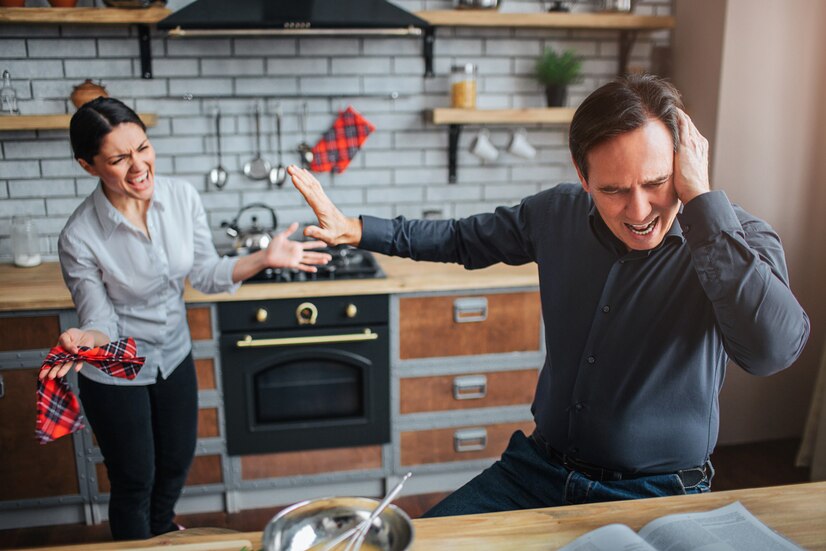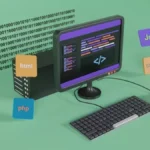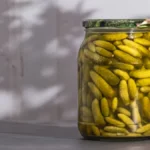Fire is a powerful force that can quickly turn our homes into danger zones. And when it comes to oven fires, the stakes are high. It’s not just about saving dinner from going up in smoke; it’s about protecting our loved ones and keeping our homes safe. In this blog post, we’re going to equip you with all the knowledge you need to safely put out an oven fire and prevent it from happening in the first place. So grab your apron and let’s dive into the world of oven fire safety!
Understanding the Causes of Oven Fires
Oven fires can occur for a variety of reasons, and it’s essential to understand these causes to prevent them from happening in the first place. One common cause is food debris that accumulates inside the oven over time. This build-up can ignite when exposed to high temperatures, causing flames to erupt.
Another culprit behind oven fires is improper use of cooking oils or fats. When these substances come into contact with heating elements or open flames, they can quickly ignite and escalate into a dangerous situation.
Additionally, malfunctioning thermostats or faulty electrical wiring within the oven can also lead to fires. These issues may cause the appliance to overheat, resulting in sparks or flames that pose a significant risk.
Self-cleaning functions on ovens can sometimes trigger fires if not used correctly. The extreme heat generated during self-cleaning cycles may cause grease or food residues inside the oven to catch fire.
By understanding these potential causes, you’ll be better equipped to take preventative measures and keep your kitchen safe from an unexpected inferno.
Safety Precautions to Take Before Attempting to Put Out a Fire
When an oven fire erupts in your kitchen, it’s essential to remain calm and take immediate action to ensure everyone’s safety. However, before attempting to extinguish the flames, it is crucial to follow some important safety precautions.
Always prioritize personal safety. Make sure you and your family members are safely out of harm’s way by evacuating the area immediately. Do not attempt to fight the fire if it starts spreading rapidly or becomes uncontrollable.
Never use water to put out an oven fire. Water can cause grease fires or electrical fires in case of a malfunctioning appliance. Instead, turn off the oven and keep its door closed tightly; this will help smother the flames by cutting off oxygen supply.
Next, have a fire extinguisher readily available in your kitchen and ensure that you know how to operate it effectively. It is recommended to have a multipurpose A-B-C rated extinguisher suitable for various types of fires.
Additionally, avoid using towels or other flammable materials as they may intensify the blaze rather than putting it out. Keep combustible items away from hot surfaces or open flames at all times.
Lastly but importantly, do not forget about contacting emergency services even if you manage to successfully put out the fire on your own. They should be informed about any potential hazards as well as any necessary medical attention required due to smoke inhalation or injuries caused during evacuation.
Remember that taking these safety precautions before attempting anything else can prevent further damage and minimize risks associated with an oven fire incident.
ALSO READ: Eggs-pert Tips for Poaching Eggs in Oven
Step-by-Step Guide for Putting Out an Oven Fire
When faced with an oven fire, it’s important to act swiftly and calmly to minimize damage and ensure your safety. Follow these step-by-step instructions to safely extinguish the fire:
1. Stay calm: Panic can hinder your ability to think clearly and react appropriately in an emergency situation.
2. Turn off the oven: Quickly locate the oven controls and turn them off immediately. This will cut off the fuel supply to the fire.
3. Keep the door closed: Avoid opening the oven door while there is a fire inside as it may cause flames or smoke to escape into your kitchen.
4. Do not use water: Water can exacerbate grease fires, so avoid using it at all costs.
5. Smother small fires with baking soda or salt: If you have a small flame that you feel confident handling, carefully sprinkle baking soda or salt onto the flames until they are suffocated.
6. Use a fire extinguisher for larger fires: If the flames are too large or spreading rapidly, utilize a suitable type of fire extinguisher specifically designed for kitchen fires – such as those labeled “Class B” or “ABC.”
Prevention Tips for Avoiding Oven Fires in the Future
1. Clean your oven regularly: A buildup of grease and food particles can easily ignite and start a fire. Make it a habit to clean your oven on a regular basis, especially if you frequently cook greasy or oily foods.
2. Use oven-safe containers: Always use cookware that is specifically designed for use in the oven. Using inappropriate materials such as plastic or aluminium foil can lead to fires.
3. Be cautious with flammable items: Keep flammable items like kitchen towels, paper bags, and packaging materials away from the heat source of your oven.
4. Don’t leave your oven unattended: It’s important to always keep an eye on what you’re cooking in the oven. Never leave it unattended, especially when broiling or using high temperatures.
5. Check electrical connections: Ensure that the electrical connections to your oven are secure and free from damage or fraying wires.
6. Install smoke detectors near the kitchen area: Smoke detectors can quickly alert you if there is a fire starting in your kitchen, giving you valuable time to respond and prevent further damage.
7. Know how to properly use self-cleaning functions: If your oven has a self-cleaning feature, make sure you follow the manufacturer’s instructions carefully when using it. Improper usage of this function can cause overheating and potentially start a fire.
Common Mistakes to Avoid When Dealing with an Oven Fire
When faced with the panic-inducing situation of an oven fire, it’s essential to stay calm and take immediate action. However, in the heat of the moment, many people make common mistakes that can worsen the situation. Here are a few errors you should avoid when dealing with an oven fire.
One mistake is opening the oven door. While your instinct might tell you to do so, this can actually fuel the flames by providing more oxygen. Instead, leave the door closed to starve out the fire and prevent it from spreading further.
Another error is using water or flour to extinguish an oven fire. Water can create steam which may cause hot oil or grease to splatter, leading to burns or even causing a larger blaze. Similarly, throwing flour on a grease fire will only ignite it further.
Using a towel or other flammable material is also dangerous as they can catch fire easily and exacerbate the situation rather than putting out the flames.
A key mistake some people make is not having a fire extinguisher readily available in their kitchen. It’s crucial to have one nearby specifically designed for kitchen fires (Class K) and knowing how to use it properly.
Neglecting regular maintenance of your oven can increase the risk of fires occurring. Grease buildup and faulty electrical components are common causes of oven fires that could be prevented through routine cleaning and inspections.
When to Call for Professional Help
While it’s important to know how to safely put out an oven fire on your own, there may be situations where it is best to call for professional help.
If the fire has spread beyond the oven and you are unable to control it, do not hesitate to contact emergency services immediately. They have the expertise and resources needed to handle larger fires.
Additionally, if you are unsure about your ability to extinguish the fire or feel unsafe in any way, don’t hesitate to reach out for professional assistance. It’s always better to be safe than sorry when dealing with potentially dangerous situations.
Professional firefighters are trained in handling all types of fires, including oven fires. They have the necessary equipment and knowledge to effectively suppress flames and prevent further damage.
Remember that even after successfully putting out an oven fire yourself, there could still be underlying issues that need attention. In such cases, contacting a professional technician or appliance repair service is advisable. They can inspect your oven thoroughly and fix any potential problems before they escalate into more serious hazards.
By knowing when it’s time to seek professional help, you can ensure that any potential risks associated with an oven fire are properly addressed by experts who specialize in handling these types of emergencies.
Conclusion
In the kitchen, safety should always be a top priority. Understanding the causes of oven fires and taking appropriate precautions can help prevent these dangerous situations from occurring. However, if you do find yourself facing an oven fire, it’s crucial to remain calm and take action quickly.
Remember to follow the step-by-step guide provided in this article for putting out an oven fire safely. By turning off the heat source, keeping the oven door closed, and using baking soda or a fire extinguisher as necessary, you can effectively extinguish small flames without risking your safety.
Additionally, implementing prevention tips such as regular cleaning and maintenance of your oven can greatly reduce the likelihood of future oven fires. Avoiding common mistakes like using water to put out grease fires or leaving flammable items near your oven is also key in preventing accidents.
However, it’s important to know when professional help is needed. If you’re unable to control or extinguish the fire on your own or if it has spread beyond containment, don’t hesitate to call emergency services immediately.
By staying informed about oven fire safety measures and practicing caution in the kitchen, you can minimize risks and protect yourself and your loved ones from potential harm. Stay safe while enjoying all that cooking has to offer!











